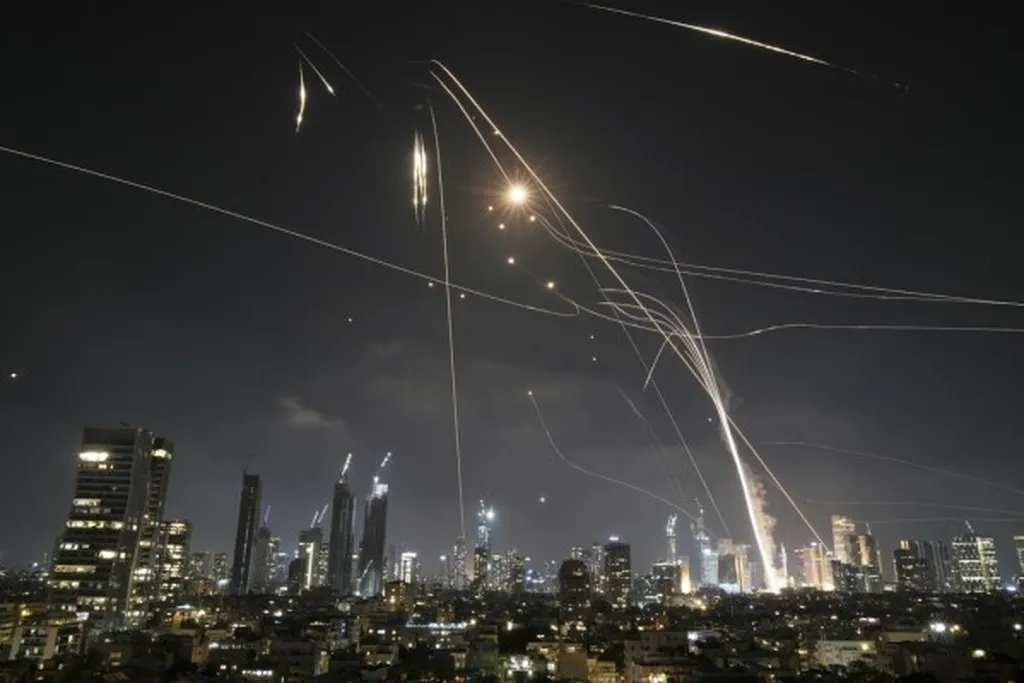As the conflict between Israel and Gaza subsides, the battlefield may be quieting, but Israel’s defense technology sector is poised for explosive growth. Systems tested under fire and innovation accelerated by wartime urgency have positioned Israeli defense firms for a new phase of global relevance. From loitering munitions to AI-powered battlefield intelligence, the war has served as both a crucible and a showcase for technologies now drawing interest far beyond Israel’s traditional partners.
Combat-proven systems are driving global demand. Israel’s defense exports have long benefited from the credibility of combat-tested platforms. During the Israel-Hamas War, systems such as Rafael’s Iron Dome and Israel Aerospace Industries’ Arrow missile defense system were deployed in real-time operations. These technologies didn’t just perform; they evolved, with rapid feedback loops from troops enabling real-time upgrades and refinements. This operational validation is increasingly sought after by militaries worldwide.
In 2024, Israel’s defense exports hit a record $14.8 billion, with air defense systems accounting for nearly half of all deals. European countries, facing their own security challenges amid the war in Ukraine, increased their share of Israeli defense imports from 35% to 54% year-over-year. With the cessation of hostilities, Israel may find it easier to navigate diplomatic tensions that previously threatened arms deals. Countries like Spain and Germany had suspended or canceled contracts during the war due to political pressure and humanitarian concerns.
Avi Hasson, CEO of Startup Nation Central, told The Jerusalem Post that the end of the war and the release of the hostages is a “tremendous blessing for all of us – personally, nationally, and economically.” He believes that we’ll see a gradual uptick in defense tech deals, alongside the emergence of new start-ups in this space. While investor confidence may take time to rebound, Israel’s proven resilience and technological track record will drive renewed interest. As geopolitical conditions stabilize, and international perceptions shift, we can expect embargoes to ease and global demand for Israeli defense innovation to rise.
The appetite for such defense platforms remains high, especially because of the ongoing war in Europe and the understanding that militaries must modernize to face future threats. Nevertheless, substantial defense acquisitions are not something that governments can hide from those of their citizens who may be against the war in Gaza.
A senior defense industry source was more cautious, saying that while he was optimistic about the ceasefire, it was only the first step of the deal. Should the full plan lead to the end of the war, there would be less hesitancy to promote and approve such deals with Israeli companies, he said.
Another industry source said, behind closed doors, that some customers had told him that future deals would have to wait until the country “got its act together.” A stable post-war environment could allow Israel to rebuild trust and resume negotiations, especially with NATO allies and Indo-Pacific partners seeking advanced defense capabilities.
“The need to strengthen ground forces with advanced tactical solutions that generate operational independence remains critical for ground dominance, both in Israel and globally,” said Tomer Malchi, founder and CEO of Asio, adding that “as international attitudes toward Israel may shift, and, as peace in the region seems possible, this could generate broad economic opportunities for our economy as a whole, especially for the defense sector.”
New markets on the horizon
While Israel’s defense tech has traditionally been exported to Western allies and select Asian partners, the post-war diplomatic landscape could open doors to new markets. If a second wave of the Abraham Accords materializes, it could normalize relations between Israel and additional Muslim-majority nations.
Saudi Arabia, which has already shown signs of warming ties through quiet security cooperation, could become a major buyer of Israeli defense platforms, especially in areas such as border surveillance, drone defense, and cyber resilience.
Indonesia, the world’s largest Muslim-majority country, has historically kept its distance from Israel. But growing concerns over regional instability and the rise of Chinese influence in Southeast Asia may prompt Jakarta to reconsider its defense procurement strategy. Israeli technologies – particularly in unmanned systems and electronic warfare – could offer Indonesia a competitive edge in maritime and jungle warfare environments.
At the 80th United Nations General Assembly in New York at the end of September, Indonesian President Prabowo Subianto said the world must respect and guarantee Israel’s right to live in security.
“Israel has excellent platforms. Everyone saw what happened during the war, and countries like Saudi Arabia, UAE, and others understand the superiority of the equipment,” the first source said, adding that “we all hope that the end of the war will lead to the extension of the Abraham accords. Indonesia and Saudi have huge defense budgets and I think it’s a signal that the relationship is getting closer.”
Yet another senior defense industry source told the Post that the United Arab Emirates has recognized that Israel and Israeli companies have gained a wealth of knowledge due to the war. “

